I am currently learning how to multithread with c++, and for that im using boost::thread. I'm using it for a simple gameengine, running three threads.
Two of the threads are reading and writing to the same variables, which are stored inside something i call PrimitiveObjects, basicly balls, plates, boxes etc.
But i cant really get it to work, i think the problem is that the two threads are trying to access the same memorylocation at the same time, i have tried to avoid this using mutex locks, but for now im having no luck, this works some times, but if i spam it, i end up with this exception:
First-chance exception at 0x00cbfef9 in TTTTT.exe: 0xC0000005: Access violation reading location 0xdddddded.
Unhandled exception at 0x77d315de in TTTTT.exe: 0xC0000005: Access violation reading location 0xdddddded.
These are the functions inside the object that im using for this, and the debugger is also blaming them for the exception.
int PrimitiveObj::setPos(glm::vec3 in){
boost::try_mutex::scoped_try_lock lock(myMutex);
if ( lock)
{
position = in;
return 1;
}
return 0;
}
glm::vec3 PrimitiveObj::getPos(){
boost::try_mutex::scoped_try_lock lock(myMutex);
if ( lock)
{
glm::vec3 curPos = position;
return curPos;
}
return glm::vec3(0,0,0);
}
This is the function im using to generate each primitiveobj. (updated)
void generatePrimitive(){
PrimitiveObj *obj = new PrimitiveObj();
obj->generate();
obj->setPos(getPlayerPos()+getEye()*4.0f);
prims.push_back(std::shared_ptr<PrimitiveObj>(obj));
}

Any ideas? Edit: New functions(2), and myMutex is now private to the object. Added the function i use to generate the primitiveobjects.

Edit:
This is the code that the stack is pointing at, and this is running inside the physics thread:
nr = getNumberOfPrimitives();
double currentTime = glfwGetTime();
float deltaTime = float(currentTime - lastTime);
for(int r = 0; r < nr; r++) {
prop = getPrimitive(r);
glm::vec3 pos = prop->getPos()+glm::vec3(0,1.0f*Meter/deltaTime,0);
prop->setPos(pos);
}
Other relevant code:
int getNumberOfPrimitives(){
return prims.size();
}
PrimitiveObj * getPrimitive(int input) {
return prims[input];
}